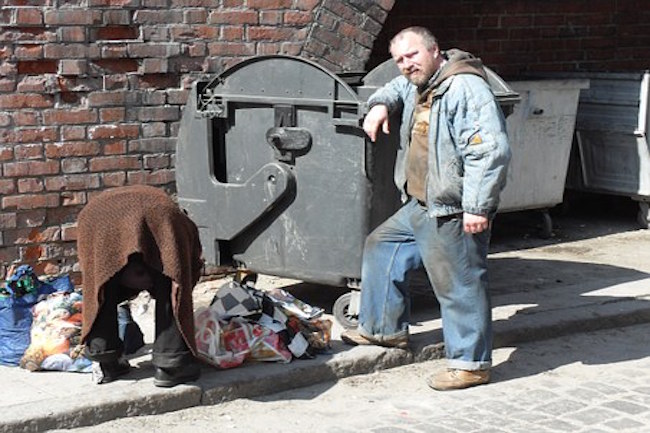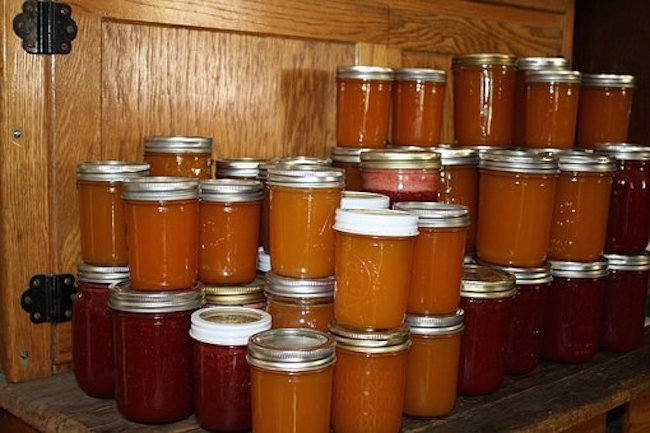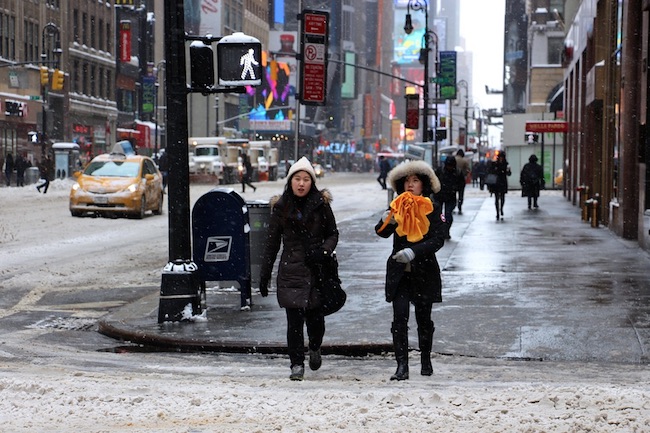HOMELESS: What We Can Learn About Survival from Life on the Streets by Fabian Ommar for The Organic Prepper People living in cities are used to a broad net of safety, convenience, and comfort. 60% (on average) of the world population, according to recent estimates, live in cities. More in developed/developing nations (around 80%, as in the U.S.) and less in poorer ones (30 to 40%). Cities provide a high level of stability and predictability. Cities also offer freedom, jobs, and a great variety of consumables, education, culture, and entertainment.…
READ MORECategory: Preparedness
Growing Vegetables Is Back in Style: Here’s How to Start Planning Your Garden
Growing Vegetables Is Back in Style: Here’s How to Start Planning Your Garden by Joanna Miller for The Organic Prepper Whether you celebrate St. Bridget’s Day, Candlemas, Imbolc, or Groundhog Day, February 2 is coming up. For those of us active in gardening and raising animals in the Northern hemisphere, this means it’s time to think about spring. And that means garden planning! The pandemic has caused one very positive resurgence: growing food is back in style and no longer the purview of hippies or those crazy preppers. Last year…
READ MOREWould You Be Prepared for a Communications Blackout?
Would You Be Prepared for a Communications Blackout? by Toby Cowern for The Organic Prepper Recent events have made us aware that the potential for communications interruptions or blackouts is undoubtedly on the rise. What a lot of people are now realizing, unfortunately, is that access to certain communications platforms is not a right and is not guaranteed. Many people have recently become comfortable with using only a few platforms for the vast majority of their communications. And in normal times, that’s okay. But we must have contingency and backup plans for alternative means…
READ MORERESILIENCE: Here’s How Prepping HAS to Change
RESILIENCE: Here’s How Prepping HAS to Change by Daisy Luther for The Organic Prepper For as long as I’ve been involved in preparedness, it’s revolved around a combination of skills and stuff – but mostly stuff. Go to just about any website, including my own, and you’ll see gear reviews, cupboards full of food, flashlights, generators, and all sorts of…well…stuff. But prepping has to change. No longer can we focus just on the “stuff” aspect, amassing things for our stockpiles and expecting that to save us. Instead, our focus should…
READ MOREFoods That Don’t Store Well For ‘Long Term’
Foods That Don’t Store Well For ‘Long Term’ by Ken Jorgustin for Modern Survival Blog There are lots of foods that store quite well for a very long time under the right conditions. However there are foods that do NOT store well for the long term. Here’s a list of some of the foods that you should not store for ‘long term’… Note: I’m generally referring to food storage of 1 year or more. Basically I’m calling out a few food types that you wouldn’t want to put in the deep pantry…
READ MOREGrocery Store Canned Food For Your Deep Pantry
Grocery Store Canned Food For Your Deep Pantry by Ken Jorgustin for Modern Survival Blog GNN Note – Maintaining a “deep pantry” keeps the family ahead of inflation, teaches spacial management, time management and inventory management. All life skills that are too far removed for our “just-in-time” society. /END Canned food from the grocery store definitely fills a gap in food storage preparedness. Here’s why… – They come in a wide variety of food groups. – Available at all grocery stores. – Easy to store in your pantry / shelves. –…
READ MORE6 Survival Movies with Really Important Lessons
6 Survival Movies with Really Important Lessons by Fabian Ommar for The Organic Prepper Life is not a movie, but there are claims that it imitates art. Here are a few SHTF and survival-themed films (including some takeaways) for preppers looking for a bit of educational entertainment during (much deserved) breaks. We are continually discussing and suggesting prepping and survival books. Besides direct experience and/or training, they are probably the best source of knowledge and information indeed. Movies, too, can be entertaining yet educational and inspiring at the same time. Who…
READ MOREOPSEC For The Preparedness-Minded
OPSEC For The Preparedness-Minded by Ken Jorgustin for Modern Survival Blog OPSEC, (operational security) is a process of protecting and safeguarding something – typically information, or things, plans, actions, or accomplishments – from adversaries. In simple terms, it’s keeping ‘it’ secret… Keeping it Secret Now more than ever, this has become quite important. The notion of OPSEC is often used in context with various aspects of preparedness – for someone who is preparedness-minded. Why? Because most people (unfortunately) do not understand the rationale of being preparedness-minded. They may negatively label you.…
READ MOREWhy OpSec Has NEVER Been More Important
Why OpSec Has NEVER Been More Important by Daisy Luther for The Organic Prepper If you’ve been in prepper circles for long, you’ve probably heard the term OpSec. It is taken from military jargon and it’s short for Operations Security. In the preparedness and survival world, it generally means not letting other people know that you are prepped, or if they know, they definitely don’t know the specifics of what you have. Not only do we want to keep the level of our preparedness private, these days, keeping our opinions…
READ MOREThe Uncensored, Real-Deal Guide to Bugging Out of the City
The Uncensored, Real-Deal Guide to Bugging Out of the City by Fabian Ommar for The Organic Prepper The concept of bugging out is one of the most discussed and controversial topics in preparedness and survivalism. The term bug out comes from the military. It means retreating, fleeing in a hurry, abandoning position in panic. This definition applies to the act of bugging out in survivalism as well. For the sake of objectiveness, let’s consider bugging out as fleeing the urban context because this is the current situation for most people. …
READ MORE









